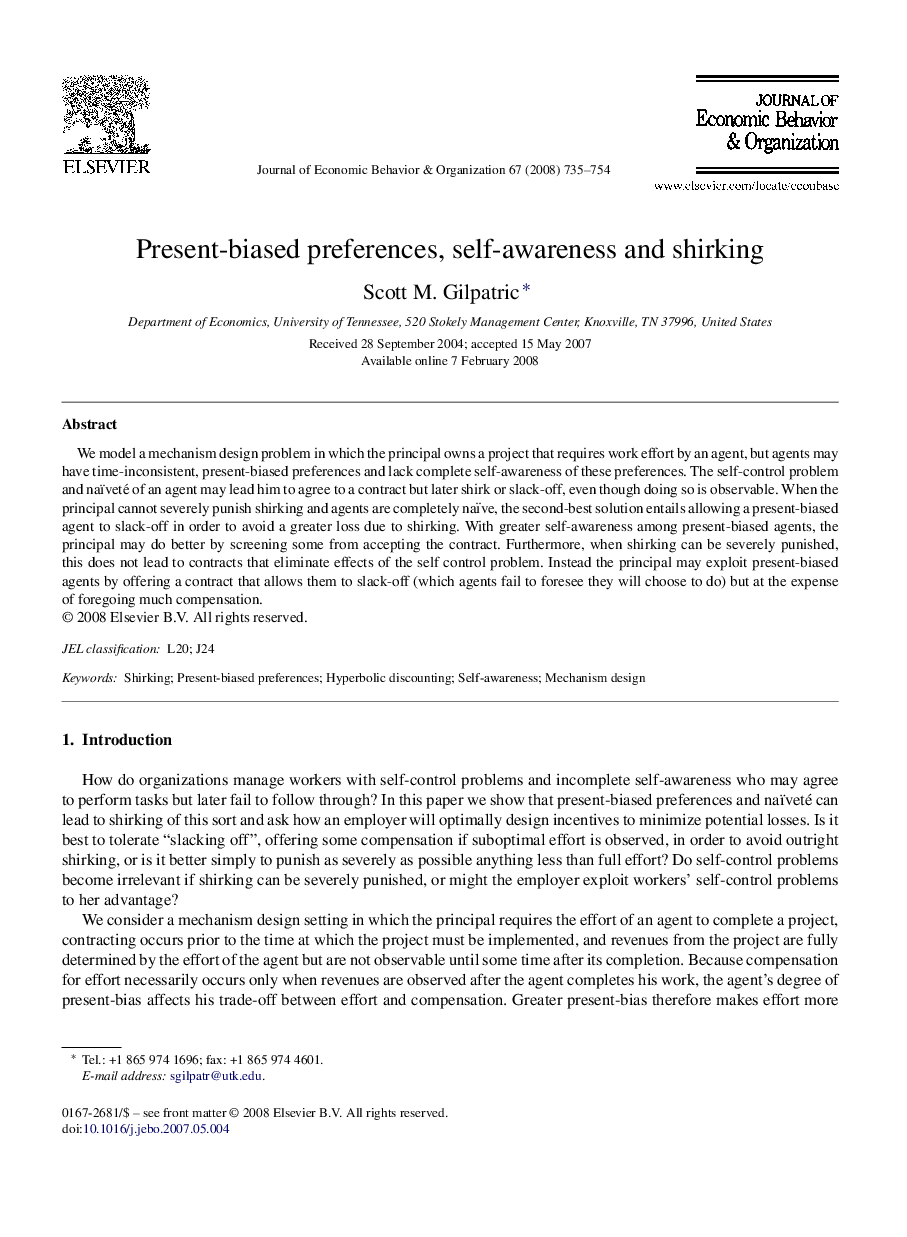| Article ID | Journal | Published Year | Pages | File Type |
|---|---|---|---|---|
| 884638 | Journal of Economic Behavior & Organization | 2008 | 20 Pages |
We model a mechanism design problem in which the principal owns a project that requires work effort by an agent, but agents may have time-inconsistent, present-biased preferences and lack complete self-awareness of these preferences. The self-control problem and naïveté of an agent may lead him to agree to a contract but later shirk or slack-off, even though doing so is observable. When the principal cannot severely punish shirking and agents are completely naïve, the second-best solution entails allowing a present-biased agent to slack-off in order to avoid a greater loss due to shirking. With greater self-awareness among present-biased agents, the principal may do better by screening some from accepting the contract. Furthermore, when shirking can be severely punished, this does not lead to contracts that eliminate effects of the self control problem. Instead the principal may exploit present-biased agents by offering a contract that allows them to slack-off (which agents fail to foresee they will choose to do) but at the expense of foregoing much compensation.
